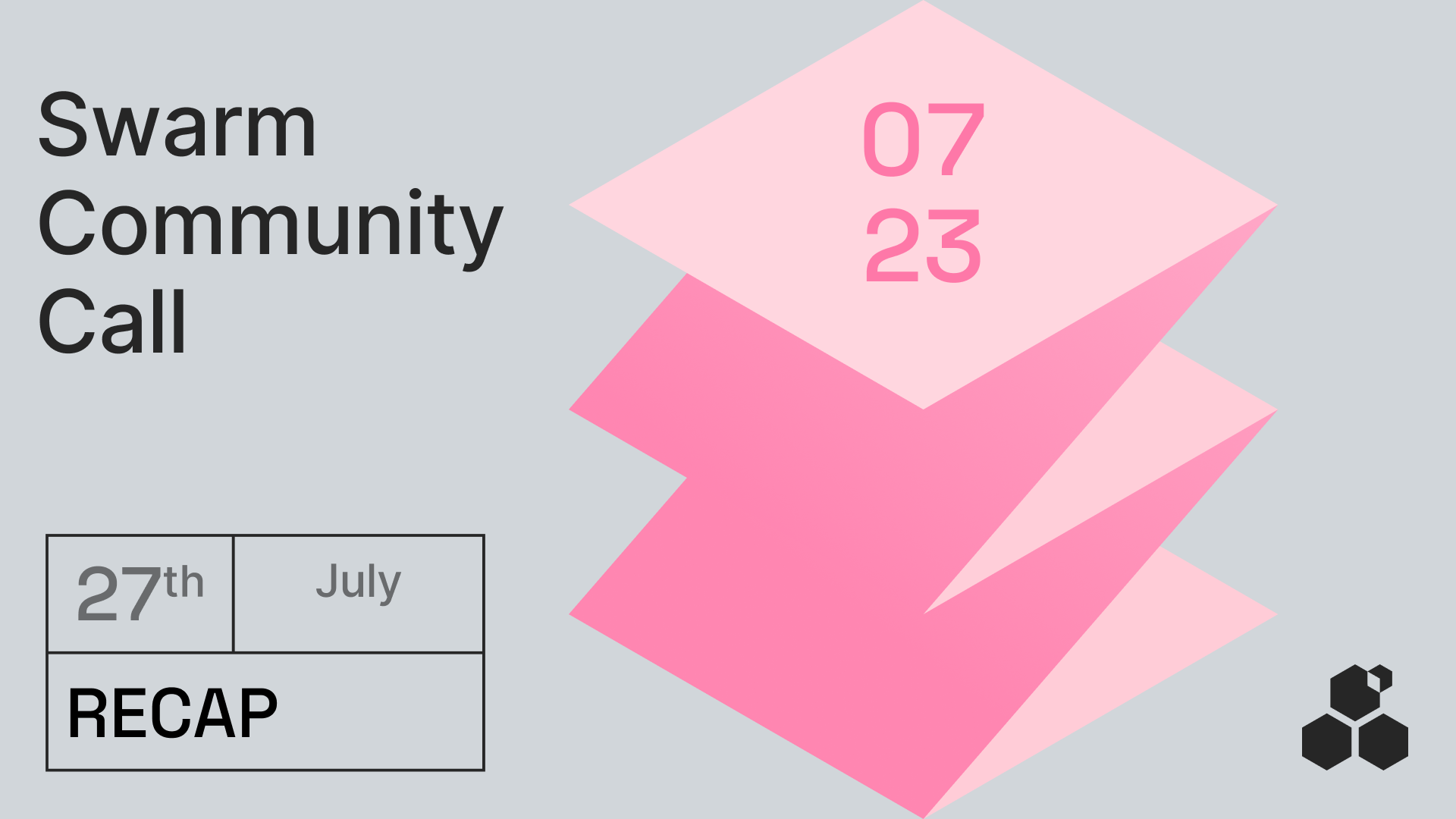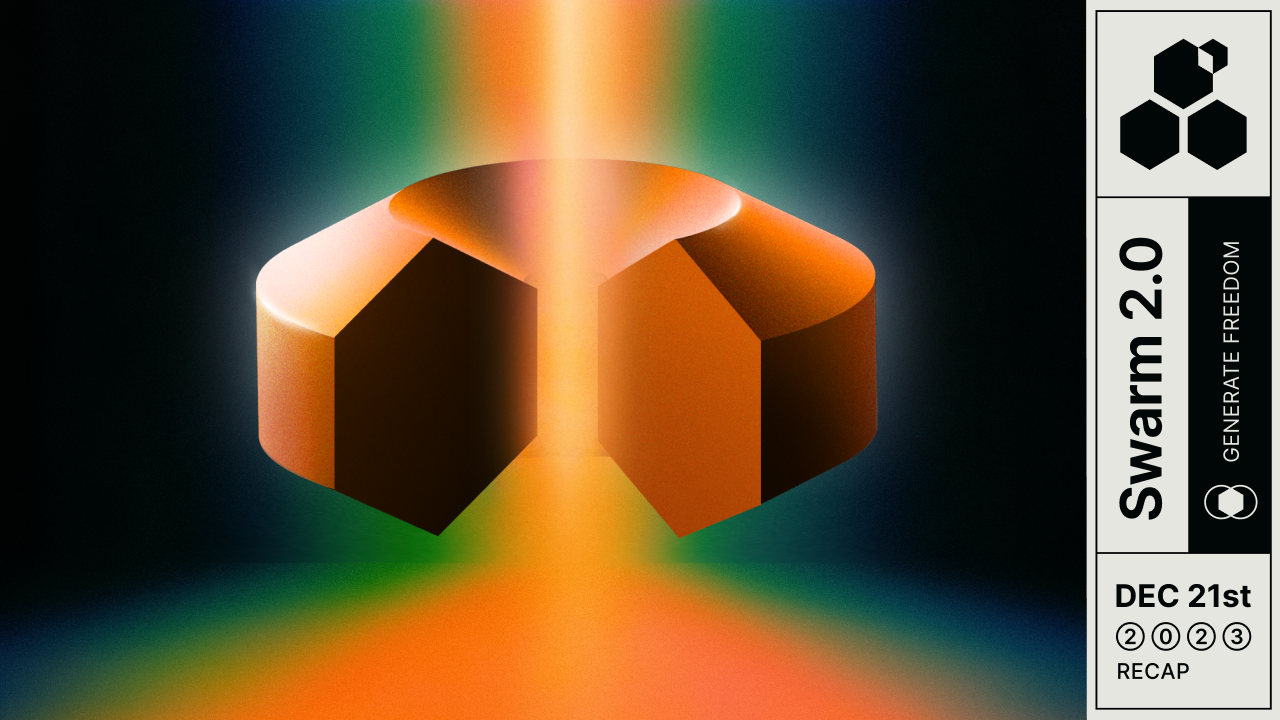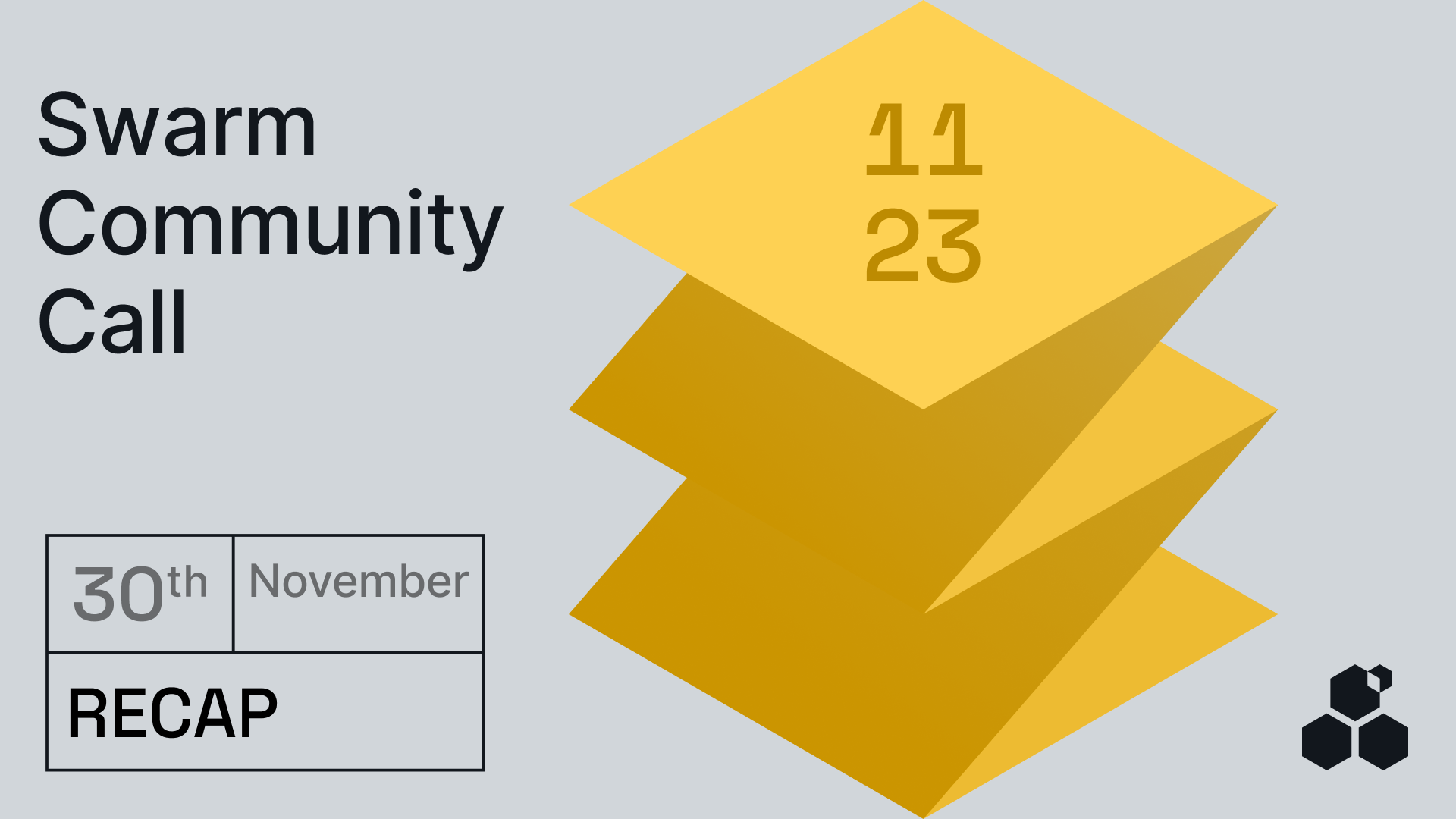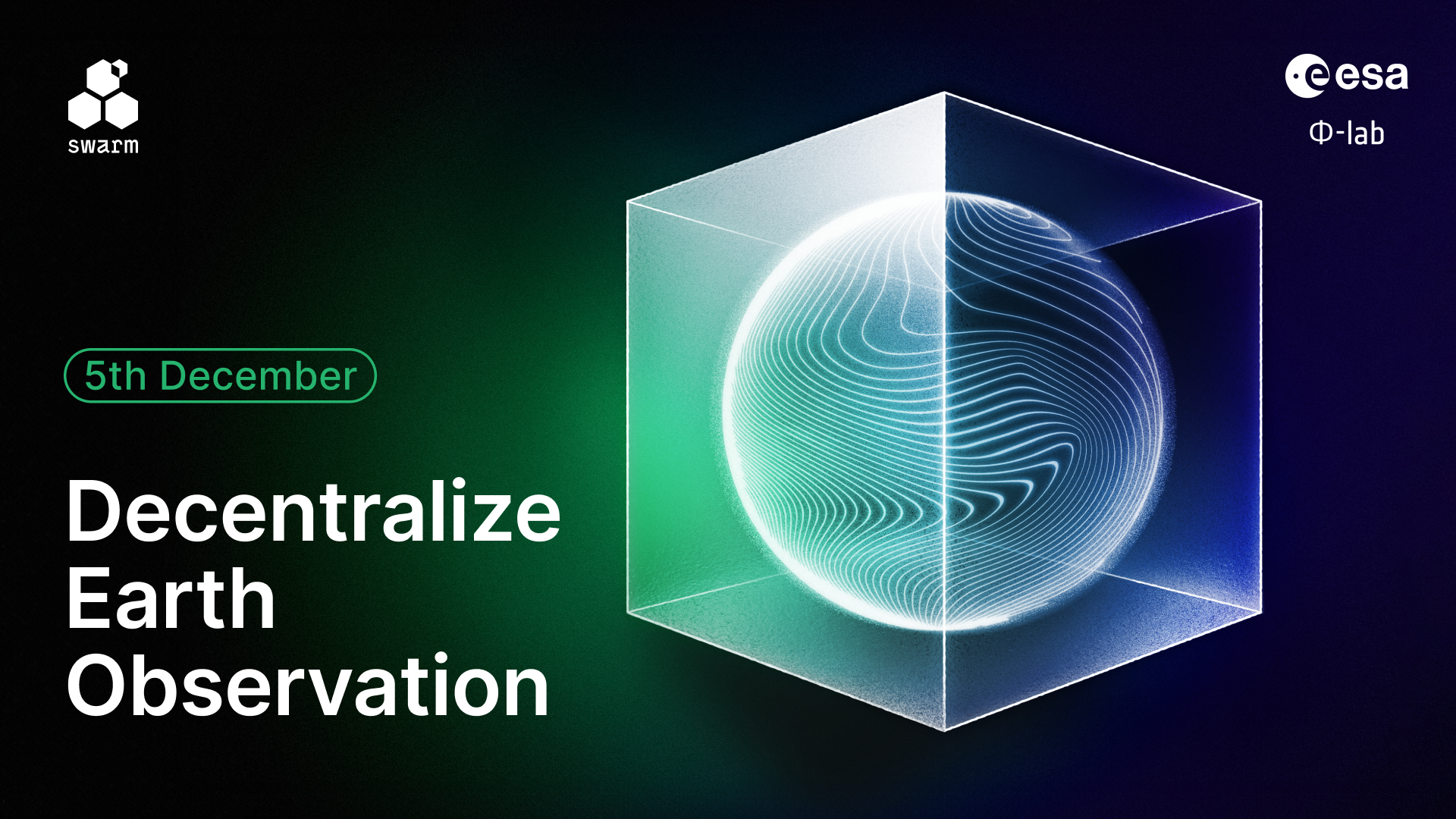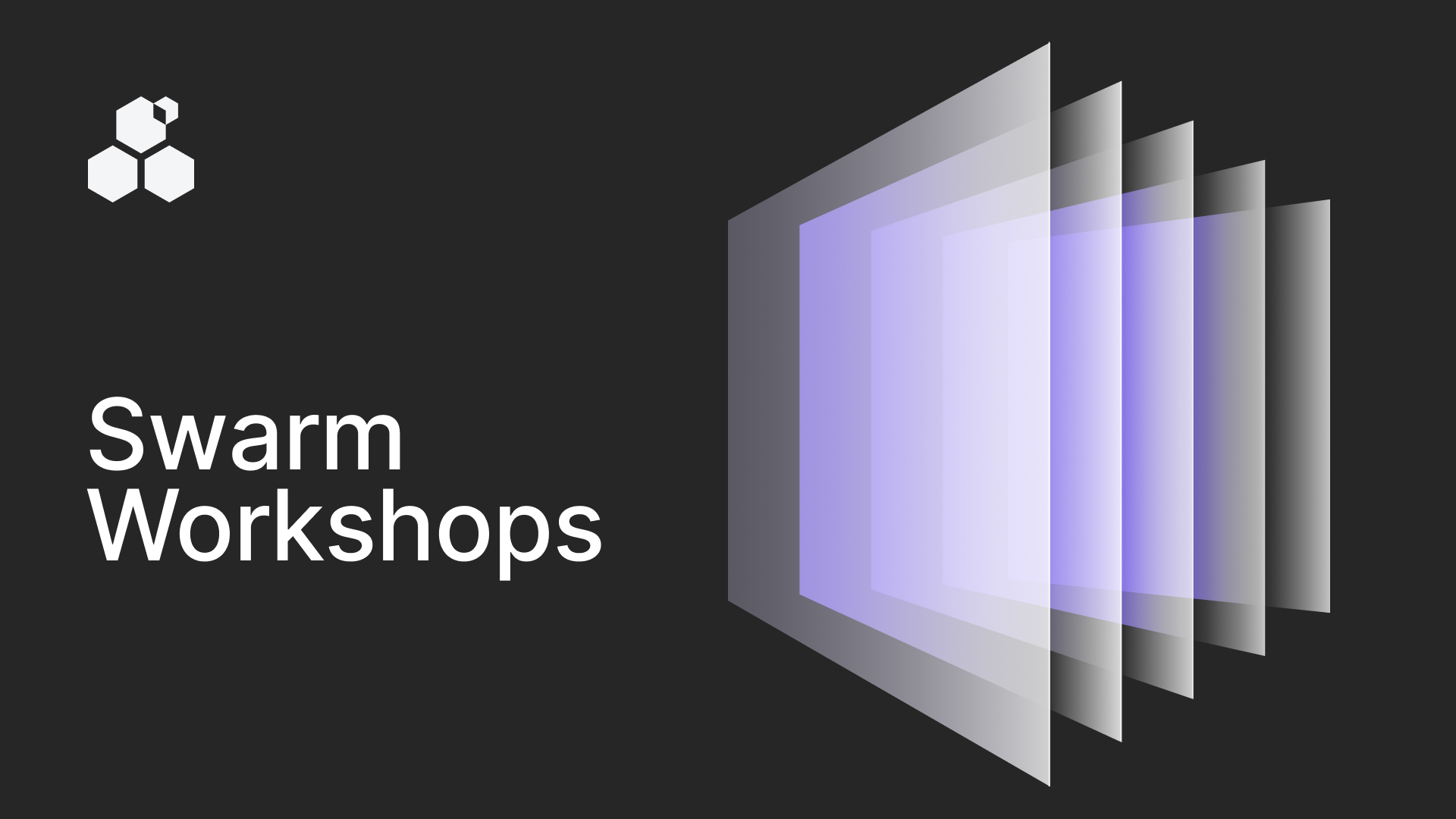For those who missed out on our monthly gathering on Discord, with the latest news, retrospective and a debate on features and future plans, here is a short recap of July’s Swarm Community Call.
Release of the new localstore
The new localstore is in the final stages of testing and is about to go live this week as Bee v1.17, Callum Toner from the Research Track announced. The latest version of Bee will be a breaking change, which is a gentle reminder to all node operators to update their nodes as soon as possible to avoid any loss of functionality.
As Callum Toner from the Research Track pointed out, the new release will include the rewritten localstore, essentially leading to Bee 2.0 once the team feels that there is enough user value included and everything is working as expected.
Regarding the importance of the new release, Alok Nerurkar, Bee team developer, explained that the localstore is one of the defining elements of the Swarm network, because it’s responsible for the actual storage of data chunks. Since chunks are used in different contexts (i.e. in data uploads, caching, reserve storage, etc.), the new local store can isolate and prevent these contexts from affecting each other. This way, the storage component is more observable and maintainable.
As community members soon pointed out, the new localstore also enables multi-stamp chunks, which is good news. Multi-stamp chunks make it possible for more people to support the same content on Swarm; for instance, good public data will be able to persist as long as anybody is interested in persisting it.
Formalising the ethos of decentralisation with SWIPs
Swarm improvement proposals (SWIPs) are a way for the Swarm community to propose features that they think should be included in the Swarm’s software to make it better. One such proposal has already been created and concerns the implementation of erasure coding, which helps protect against errors and data corruption.
“We want to make a lot of system- and very user-centric changes and not reference just the roadmap, which is influenced predominantly by our research, or Bee ideas, or business development. The important thing is, we need to deliver for the users and there's no better way to do that than for our users to actually tell us what their problems are and what makes the product better … We want the user feedback and to actually make those improvements sooner rather than later,” Callum succinctly laid out the logic behind SWIPs.
Better Swarm, better docs
The entire documentation website has been revamped in the past few months, including logos, colours, fonts and the OpenAPI specs. Noah Maizels emphasised how the “Learn” section is now populated with completely new content that gives a very high-level overview of Swarm. It is also meant for newcomers to get more gently acquainted with the core concepts from the Book of Swarm. The latter is undergoing a streamlining process to make it easier to read and more accessible to a wider audience.
For those who want to dig a bit deeper into the documentation, all the Bee client specs currently under development are accessible here (concrete specs) and here (this is a branch of the Bee documentation).
Community Talks – NFT metadata on Swarm
In the Community Talks segment Ramesh Palikara presented a simple project that lets you upload NFT metadata to Swarm. The example demonstrated on the call uploaded one NFT image and its data as a reference, but the idea is that anyone can fork the original NFT, create their own instance of it and build upon it with original creative ideas.
For example, one can use their own algorithm to generate multiple images with different characteristics and then upload them to Swarm. You can also configure it so that other blockchains can deploy the NFTs as well. And because it is hosted on Swarm, it works the same with all file types – audio, video, image, even with whole websites with their own embedded multimedia.
So, as a playful challenge, check out this blog to learn how to store NFT metadata on Swarm.
See you on 31 August at the next Swarm Community Call!
Discussions about Swarm can be found on Reddit.
All tech support and other channels have moved to Discord!
Please feel free to reach out via info@ethswarm.org
Join the newsletter! .
